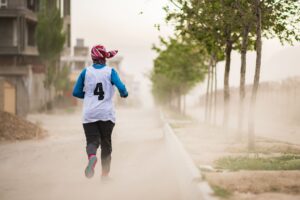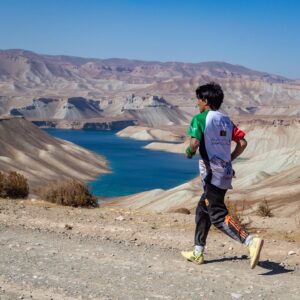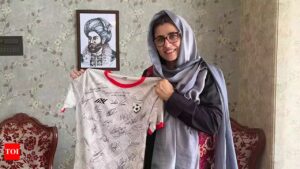KABUL (SW) – In the first eleven months of 2022, the International Committee of the Red Cross (ICRC) recorded a 50 per cent increase in children treated for cerebral palsy (CP) in Kabul, as compared to the previous year.
Against a backdrop of acute food insecurity affecting half the country’s population (over 20 million people), the number of new patients treated for cerebral palsy in the ICRC’s physical rehabilitation centre in Kabul reached 1673 this year, compared to 1125 for the same period in 2021.
“Poverty, traumas, lack of medical awareness and lack of regular check-ups of the mothers before and during pregnancy are factors that can cause cerebral palsy in babies,” explained Dr. Murid Ahmad Rasekh, supervisor of the pediatric department at the ICRC’s physical rehabilitation centre in Kabul.
Insufficient nutrition for the mother during pregnancy and increased physical activity like farming can also increase the possibility of children being affected.
“Even if we cannot directly connect the increased number of patients to the worsening humanitarian situation in Afghanistan, we know that more people are struggling to put food on the table and there is a definite increase in the number of malnutrition cases,” says Dr. Rasekh.
Cerebral palsy is an early childhood disorder caused by damage to the developing brain, which as a result affects body movement, muscle control, muscle coordination, muscle tone, reflex, posture, and balance. This disability is a lifelong condition, and it’s different for every child. This disorder can occur at three stages: during pregnancy, at birth, or shortly after birth.
“The symptoms vary among children, they always experience age-related changes like, weak muscles, decreased balance, difficulties with hearing, speaking, sitting, and walking, as well as epilepsy and visual, speech and intellectual impairments,” says Dr. Rasekh.
There is no known cure for cerebral palsy and any damage to the brain is irreversible.
Patients with cerebral palsy can benefit from supportive treatment, such as physical therapy which is provided free of charge at the seven ICRC rehabilitation centres across Afghanistan.
“These treatments improve the quality of life for patients and help them reach their full potential. The earlier the treatment starts, the better the chance to see improvements,” says Dr. Rasekh.
He goes on to explain that through supportive treatment children with cerebral palsy will be able to take care of their daily needs and become more independent. It will also prevent muscle strain, deformity and bedsores. “Overall, it helps to ease life for patients and their families,” says Dr. Rasekh.
Most of the families that seek support at the ICRC’s physical rehabilitation centres are not aware of the causes of this condition. “We see families with three or four children who have cerebral palsy. Most of the parents are uneducated and struggle financially. Usually, they do not have enough information about the importance of good nutrition and relative rest for a pregnant mother,” says Dr. Rasekh.
ENDS






